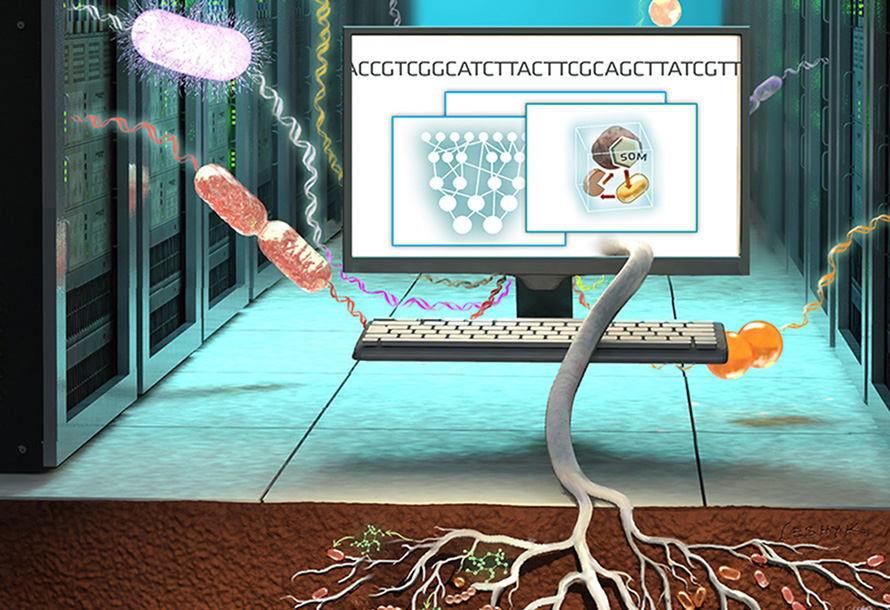Scientists are using the DNA from soil microbes to model how they function and use carbon, ultimately helping to advance the accuracy of climate models.
Climate models are essential to predicting and addressing climate change, but can fail to adequately represent soil microbes, a critical player in ecosystem soil carbon sequestration that affects the global carbon cycle. A Berkeley Lab–led team of scientists has developed a new model that incorporates genetic information from microbes, enabling them to ascertain how soil microbes store carbon supplied by plant roots. The model could inform agricultural strategies to preserve carbon in the soil, supporting both plant growth and climate change mitigation.
This research is described in a new paper that was recently published in the journal Nature Microbiology. Eoin Brodie, a senior scientist in the Earth and Environmental Sciences Area (EESA) who has a secondary appointment in the Environmental Genomics and Systems Biology (EGSB) Division is a co-corresponding author with Jennifer Pett-Ridge of Lawrence Livermore National Laboratory (LLNL). Pett-Ridge leads the “Microbes Persist” Soil Microbiome Scientific Focus Area project that is funded by the DOE Office of Science in support of this work. EGSB research scientist Kateryna Zhalnina also contributed to the work.




